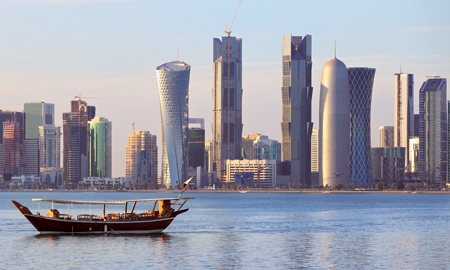Qatar’s building industry has enjoyed unprecedented growth in recent years, the result of a buoyant economy driven by the oil and gas sectors but with pressing needs to develop major infrastructure, housing and social projects.
As a result, the skyline and even the geography of Doha have undergone a sea-change, with projects such as the new international airport, the Katara Cultural Village and the artificial island called The Pearl Qatar, a 4 million square-metre exclusive property development built on reclaimed land.
Today, the building boom continues but with a different focus. On the one hand, as Qatar prepares for the FIFA Soccer World Cup in 2022, plans are well underway for the construction of hotels, stadiums and other related infrastructure. According to a report by
Commercialbank Capital, spending on the World Cup preparations could reach as much as $150 billion (EUR XX billion) in the next five to six years.
However, the World Cup won’t be the only catalyst for growth. The Qatari government, having invested heavily in the hydrocarbons sector over the past decade, is now moving ahead with plans to promote non-oil industries.
Investments in tourism, transportation, utilities, including solar energy, will provide opportunities for builders, as will projects in education and health care. The Qatari government plans to spend $225 billion on construction and infrastructure projects in the 2011-2016 period. Commercialbank Capital estimates that the total construction market size through 2020 could be as large as $315 billion.
Two of the companies which are set to profit from this activity are Velosi and the
Qatar Building Company (
QBC), both featured on this page. Neither one is a newcomer; each has established itself as a major player in the building sector and has strengths in particular areas, Velosi as a contractor to the oil and gas industry worldwide; and QBC with its history as a civil engineering company which has branched out into building material supply trading and other areas.
Both are well-positioned to take advantage of the upswing in construction as Qatar’s government seeks to create a sustainable economy with a wide range of sources for producing wealth, apart from just oil and gas.

0 COMMENTS